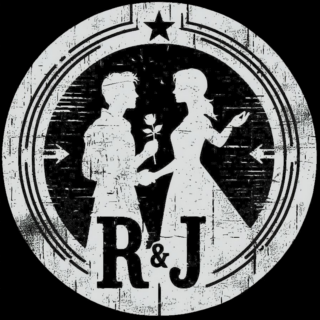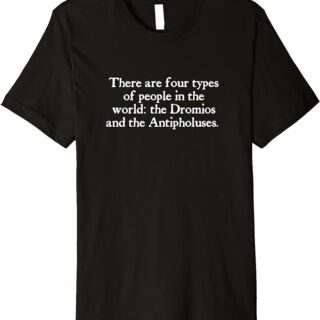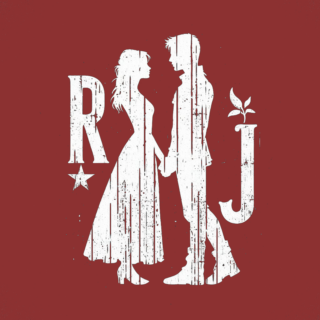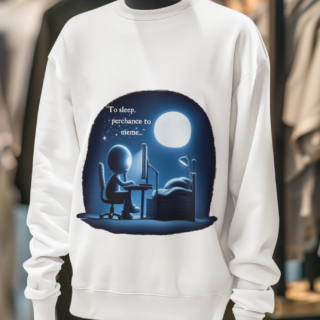I’m surprised and disappointed that we missed this opportunity when the Shakespeare Quarterly took to the web for peer review. They posted four essays not yet accepted for publication, and then … oh, a “core group of experts” were invited to comment. I thought for a minute there that it was actually a big step in the right direction, but now I’m not so sure.
Month: August 2010
Much Ado
So my kids will be seeing Much Ado About Nothing for the first time on Wednesday. I’ve told them the story generally, but wanted to write something down that attempted to touch on the major plot points and characters a little more thoroughly. I was surprised that, while I could find plenty of summaries that walked right through the play front to back, I couldn’t find any that I would actually have a child read. With that, I whipped this up. It is literally first draft right from brain to fingers to Microsoft Word. If I have time I will edit it up a bit, but I was running out of time and wanted to get something written that I could print out and let them read. I sometimes wonder if I should sit down and make a handful of these that I’m actually happy with, and make them available for download for other parents in my situation who want something that a 6yr old could read. Beatrice and Hero, two young ladies of the city of Messina, were excited to meet their father’s guests. Don Pedro had come home from the war and brought with him two heroes of the battle, Claudio and Benedick. Beatrice had actually known Benedick for a long time, and though she was secretly glad to see him again, she wouldn’t tell anybody. Don Pedro would also be bringing his brother Don John, who had been getting himself into trouble lately and needed to be kept where Don Pedro could keep an eye on him. When Claudio meets Hero he immediately falls in love, and it is not long before he seeks out her father Leonato to ask for her hand in marriage. Benedick and Beatrice, on the other hand, do nothing but hurl insults back and forth at each other every chance they get. During a costume ball Beatrice even ends up dancing with Benedick without knowing who it is, and she continually but unknowingly insults him to his face. Meanwhile, Don John is bored and looking to stir up some trouble. When he sees the budding romance between Claudio and Hero, Don John tries to sabotage it by spreading the rumor that Hero is in love with Don Pedro. No one believes the story, and it’s not long before everyone begins planning the wedding of Hero and Claudio. Excited that he’s already played matchmaker once, Don Pedro decides that he will cause Benedick and Beatrice to fall in love as well. With the help of Hero and the others, they make sure that Benedick hears them talking of Beatrice’s love for him. Likewise, when they know Beatrice will hear they talk about Benedick’s love for Beatrice. Separately, both of them begin to realize that maybe love is what they’ve felt for each other all along. Don John has not given up yet, however. One of his workers, Borachio, has his girlfriend dress in Hero’s clothes and meet him in at night near Hero’s house. When Don Pedro and Claudio are walking nearby, they see this strange man with a woman who looks like Hero. Hero is to marry Claudio, so this is one of the worst possible things that Claudio could see. Claudio is so angry that he doesn’t just call off the wedding, he lets the entire ceremony proceed until it is his time to speak. Then, in front of her family and all her friends, Claudio says that he knows of her unfaithfulness to him and calls her all manner of terrible names. Hero faints, but her father Leonato believes Claudio’s accusations. Beatrice and Benedick believe Hero, and together with the priest they calm Leonato down and convince him that it would be best for everyone to spread the word that Hero has died of grief. While they work together to save Hero’s honor, Benedick finally tells Beatrice that he loves her. Beatrice seizes on the opportunity and tells him, “If you love me, you’ll do anything for me, right? Good, go kill Claudio.” Benedick does not have to challenge his friend, however, because Hero’s father has already done it. Just before they are about to go through with the duel, the local sheriff Dogberry marches a captured Borachio onstage and explains that he overheard him confessing the entire plan. Everyone now understands why Claudio said what he did, and Claudio is overwhelmed with guilt. Claudio is the only one who does not know that Hero is actually still alive. He promises to do whatever Leonato asks, as penance for what he put the family through. Leonato says that Claudio must agree to marry his niece (not Beatrice), a woman that Claudio has never seen. Claudio, a man of his word, agrees to this arrangement. Of course, this “other woman” is actually Hero, who surprises Claudio at the altar. With everyone once again in a marrying mood, the friends get together and pressure Benedick and Beatrice to admit that they are in love and should marry. Claudio shows a poem that Benedick wrote expressing his love for Beatrice, and Hero shows a similar poem that Beatrice wrote about Benedick. Still insulting each other the entire time, Beatrice and Benedick agree to marry.
The “Dying Offstage” Rule
Following up on today’s earlier Mercutio question, here’s one in search of a more specific answer from some of our students of the theatre:
Sometimes characters go out of their way to die offstage, Mercutio being a prime example. Why?
I’m assuming that there was some sort of structural framework that Shakespeare was following that required this. Why not have Mercutio die onstage? I’m guessing there’s a particular reason.
Assassination and Bump
You probably see it quoted all the time: “Shakespeare invented the words assassination and bump!”
It is…inaccurate. What does it mean to invent a word? Can history ever really trace the first person to string together a series of letters in a way that no one else ever did?
It is more correct to say that Shakespeare represents the first recorded use of the word. In that case, the statement is true: assassination appears in Macbeth, and bump (as a noun, not like to bump into somebody) appears in Romeo and Juliet.
For the curious, here’s one of many lists of words that Shakespeare is first credited with using. I choose this list because it attempts to clarify how Shakespeare used each word when he used it in a way different than we do now. “Import”, for example, was just a different way for him to say “importance,” and that is not how we use it today.
They Have Made Worm’s Meat Of Me

Romeo + Juliet (the one with Leonardo DiCaprio) is playing in the background as I work in the home office. Can somebody tell me about Mercutio’s final moments, specifically the reference to worm’s meat?
He is a friend to the Montagues and defends Romeo’s honor in his last act. Yet his last words are, among other things, “They have made worm’s meat of me” and the more recognizable, “A plague on both your houses.”
Help me into some house, Benvolio,
Romeo and Juliet III.i.106
Or I shall faint. A plague o’ both your houses!
They have made worms’ meat of me: I have it,
And soundly too: your houses!
Yes, But What Does Worm’s Meat Actually Mean?
If people find this post looking for an actual explanation of that worm’s meat line, it’s an image that Shakespeare uses frequently. You die, you go in the ground, worms eat you. Look at how Hamlet describes what’s happening to a now-dead Polonius:
Not where he eats, but where he is eaten: a certain
Hamlet IV.iii.22
convocation of politic worms are e’en at him.
Or Sonnet 76:
No longer mourn for me when I am dead
Sonnet 76
Then you shall hear the surly sullen bell
Give warning to the world that I am fled
From this vile world, with vilest worms to dwell:
Pardon the pun, but Shakespeare and the people of the time were down to earth when it came to death. Death was a sad reality; people were dying all over the place. There could be plenty of taken of heaven and angels, to be sure. But when it came to what happens to your earthly remains? Shakespeare was very frank and often pretty gross about it.
Now, Back To Our Story
In this particular version, Mercutio wanders offstage alone when he utters the worm’s meat line as if it is an aside. That changes it for me. I always thought he was saying it to Romeo, referring to the Capulets. But said like that, coupled with the “both houses” line, it seems more that he’s talking about both of them. In his final moments, it is as if he’s wondering, “Why did I get in the middle of that?”
I suppose it’s always been there, and he clearly says both your houses. I don’t think it fully sunk in for me before. He doesn’t blame Tybalt for killing him. He blames them both for getting him stuck in the middle. My point is that the worm’s meat line is more important than the “both houses” line. Imagine for a moment that Mercutio’s not dying. He’s just angry that he’s been wounded for a dumb reason. The “both houses” line can still be hurled at Tybalt and Romeo, but it has more of a “You can both go to hell” edge. But the worm’s meat realization – especially said to himself, where “they” is clearly “both of them”, changes it. Mercutio knows he’s dead. The man with something to say is left with nothing but a curse to deliver.

























